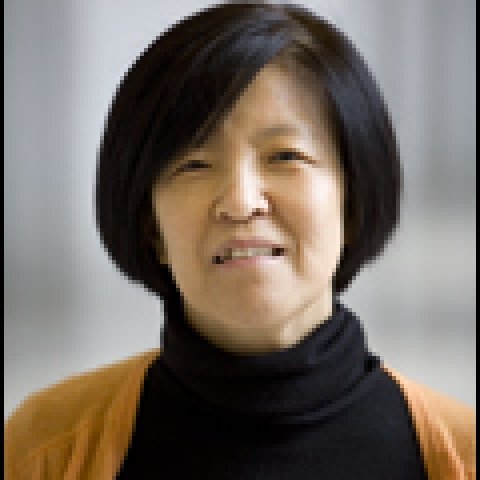Young-Sun Hong
Former Fellow
Professional Affiliation
Associate Professor of History, State University of New York, Stony Brook
Expert Bio
I was born and raised in Korea. Having grown up under a military dictatorship, I was interested in German history because I believed that a deeper knowledge of the history of that country--one that the South Korean government constantly held up as the model of a hard-working people prospering under the leadership of a benevolent patriarch--held the key to understanding the authoritarian political culture of my own country. Although my understanding of German history changed when I began my doctoral work at the University of Michigan in 1982, I retained my original interest in questions of political culture and state-society relations. My first book, Welfare, Modernity, and the Weimar State (Princeton University Press, 1998), focused on the social, ideological and political conflicts that drove the formation of the German welfare system and how they could be seen as a microcosm of the larger conflicts that were (de)forming the sphere of public discourse and political life. My more recent "Neither Singular Nor Alternative: Narratives of Welfare and Modernity in Germany, 1870-1945," which appeared in Social History (May 2005), extended the arguments that I developed there by addressing the theoretical and moral questions involved in the recent debate over the modernity of Nazi society and whether or not it can be characterized as a ‘welfare' state.I have been teaching at SUNY Stony Brook since 1993. In 1996-97 I taught at Yonsei University in Seoul, Korea. There I had a first-hand opportunity to observe the complex impact of globalization on Korean economy and society. This experience rekindled my original interest in the entangled histories of Europe and the Third World. Also new work in the fields of postcolonial, global, and transnational studies enabled me to better articulate the research questions that interested me and led me to enlarge the geographical scope of my research.
Education
B.A. (1979) History, Yonsei University, Korea; M.A. (1982 ) History, University of Illinois at Urbana-Champaign; Ph.D. (1989) History, University of Michigan at Ann Arbor
Experience
Associate Professor of History, State University of New York at Stony Brook, 1998-present
Assistant Professor of History, State University of New York at Stony Brook 2003-04
Residential Fellow, International Center for Advanced Studies at New York University
Present Book Review Editor, Social History, 1998-present
Assistant Professor of History, California State University at Fullerton
Expertise
German history; Transnationalism, Cold War and Decolonization, Medical Aid, Korea
Wilson Center Project
"The Third World in the Two Germanys: Development, Migration, and the Global Cold War"
Project Summary
My work examines how the rivalry between the two German states became intertwined with Third World struggles for national development and how the resulting dynamics helped shape global flows of migrant labor during these decades. Chapters 1 and 2 examine the first international aid programs undertaken by East and West Germany on the divided Korean peninsula. By exploring the (geo)political and socio-economic dynamics at both ends of this global linkage, I chart the initial intermeshing of the histories of the two Germanys and their East Asian partners, a development that has been virtually invisible in the dominant historical narratives of all of these countries. The remaining chapters use global health as a prism for examining the transnational connections between the Germanys and the newly independent countries of Africa and Asia from the 1950s through the 1960s. Chapters 3 and 4 study the medical aid projects and programs sponsored by East and West Germany. Both countries sent to allied and non-aligned countries drugs, medical equipment, and mobile clinics, as well as doctors and nurses, who often competed with the U.S. aid workers and Chinese "barefoot doctors" for the hearts and minds of the peoples of the Third World. However, I argue that these programs were intrinsically problematic: In addition to their limited knowledge of the actual problems facing the peoples of Africa and Asia, an enduring racism complicated the efforts of both countries to win the allegiance of their ostensible allies at the very moment when these postcolonial states were beginning to challenge the Eurocentric notions of (under)development, poverty and disease that underlay these programs.
The last two chapters investigates the history of Germany's "forgotten guest workers": the tens of thousands of young South Korean, Indian, Filipina, and Indonesian women who came to West Germany to work as nurses from the 1960s through the 1970s. I argue that the construction of the postwar German welfare state cannot be fully understood unless we understand how the expanding need for low-wage health care workers in the West dovetailed with the developmental strategies of the Third World nations from which these women emigrated. Here, I hope to give the concept of globalization a more tangible, concrete form by showing how the specific features of these flows of reproductive labor were determined by states and societies competing with each other to control the local conditions under which these global labor flows would be produced and reproduced.
Major Publications
- Welfare, Modernity and the Weimar State, 1919-1933. (Princeton University Press, 1998).
- "The Benefits of Health Must Spread Among All. International Solidarity, Health, and Race in the East German Encounter with the Third World," Katherine Pence and Paul Betts, eds., Socialist Modern. East German Everyday Culture and Politics (Ann Arbor: University of Michigan Press, 2008), pp. 183-210.
- "Neither Singular Nor Alternative: Narratives of Modernity and Welfare in Germany, 1870-1945," Social History 30:2 (May 2005), pp. 133-153.
